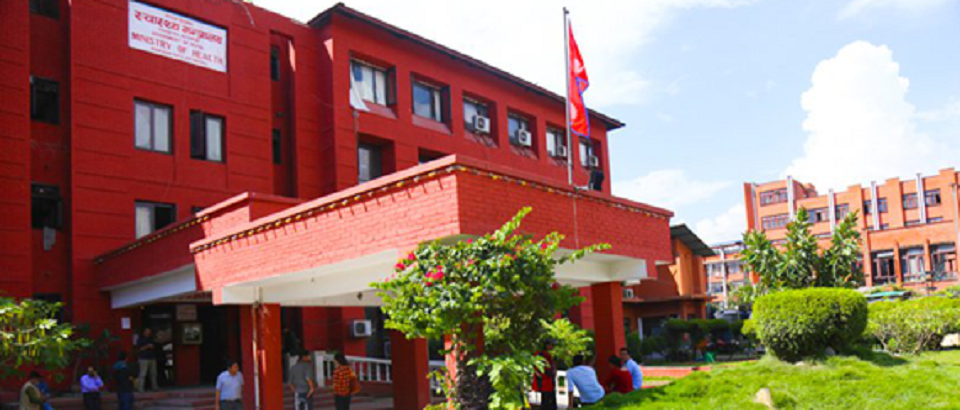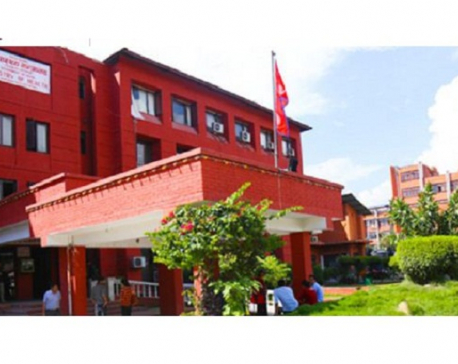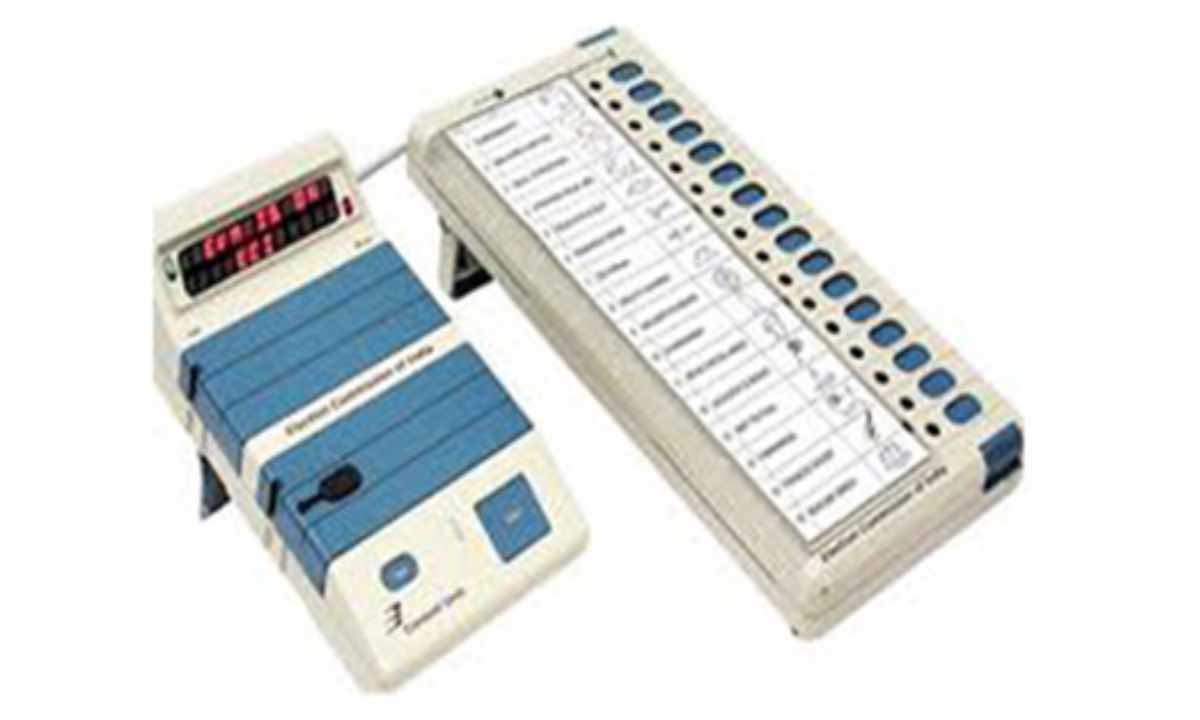
OR
Government preparing to purchase iron pills that cost 40 paisa at inflated price of 90 paisa
Published On: January 25, 2023 10:30 AM NPT By: Tapendra Karki

State treasury to incur additional financial burden of Rs 110 million to buy iron pills
KATHMANDU, Jan 23: The state treasury will likely incur an additional financial burden of Rs 110 million if the plan of the Ministry of Health to purchase iron pills used by women during pregnancy materializes. Iron pills, which are priced at 40 to 50 paisa in the market, are being purchased at an inflated price of 90 paisa by the government, raising the prospects of an additional financial burden of Rs 110 million to the state coffers.
The government has allocated Rs 200 million for the purchase of iron pills and with that amount it plans to procure 215 million pills at the rate of 90 paisa per pill. The Department of Health Services under the Ministry of Health has made final preparations for the contract with a company called Nova Genetica to purchase the pills.
The head of the procurement unit under the management division of the department, Surendra Chaurasiya claimed that the department is purchasing iron pills after completing all the due processes. "The department is going to purchase iron pills after completing all the procedures. We are going to sign an agreement with the company that offers the lowest rate among the proposals received by the department," he said.
After the government allocated a budget of Rs 200 million for the purchase of iron pills, the department called for tenders on September 30. According to the department sources, the criteria were made so that only two or three companies could participate in the bidding process. According to the department, the family welfare division of the department made the criteria under the collusion of some employees and the previous minister.
As soon as the Ministry of Finance released a budget of Rs 200 million, the Ministry of Health sent a letter to the province and local levels on September 29 asking them not to purchase iron pills.
"Due to the vested interest of the then government, it was decided that the iron pills, which used to be purchased by the province and local levels, will be purchased and sent by the department itself," said a source at the department. According to the sources at the Department of Health Services, high-ranking officials of the department had initially said that they would centralize the budget of the province and local levels on the pretext that the local levels were under the influence of some drug-manufacturing companies.
The letter sent by the ministry on September 29 was forwarded by the department on October 9 asking the province and local levels not to purchase iron pills. After a similar notice was issued by the Ministry of Federal Affairs, the department called for the tender bids on October 31 and decided to award the contract to supply the pills to the company named Nova Genetica, which proposed the lowest bid.
"The budget was released in a hurry after the election. Similarly, the ministry sent letters to the local levels and the provinces, and the department prepared the tender according to the criteria in a hurry. The procurement process proceeded ahead without even knowing how many pills are required," said a source at the department.
The department called for tenders for the supply of iron pills by targeting only a few companies and fixing the criteria in favor of those companies.
“The family welfare division and our technical team made the criteria in such a way that only those companies that supply 60 to 80 percent of the same type of medicine can apply for the bidding process. Only the companies that meet the same criteria participated in the bidding process,” said Chaurasiya.
The Nepal Health Professional Federation (NHPF) said that not all the businessmen participated in the bidding process for the purchase of iron pills and when the tender was launched targeting only a few businessmen involved in the syndicate, the state suffered a financial burden of more than Rs 110 million.
"We provide iron pills produced by Nepali industries at a much cheaper price than the companies that participated in the bidding process. We can provide iron pills for 40 to 50 paise,'' said Navraj Basnet, president of NHPF. According to him, it is seen that the state will lose a large amount of money as the tender criteria were set in collusion with the ministry, department staff and some drug supplier companies.
Before inviting the tender, the department had asked the companies to publish the rates of the iron pills. The rates were also sought from some supplier companies. Only three drug manufacturing companies gave the rates. The drug manufacturing company Curex quoted 95 paisa for the supply of iron pills, while Nova Genetica quoted 90 paisa, and Gosaikunda Suppliers Re 1.30.
"The price of an iron pill in the market is 35 to 40 paisa, but the criteria was fixed so that only the company that can supply 150 million pills will be able to participate. It has been reported that the pills have been brought for 55 paisa more by charging 90 paisa per pill.
“This is massive corruption. They cannot loot the state’s money in this way. The state should stop this kind of discrepancy in health," said Basnet.
Meanwhile, the head of the purchasing unit Dr Chaurasiya claimed that since the procurement process is transparent, there is no room for raising questions. “The procedure for procurement by the department is within the standards set by the Public Procurement Act. It is also clear how much money the medicine will cost,” he said.
According to sources at the Department of Health Services, there is also confusion as to why the previous government proposed to purchase so many iron pills. An employee of the department said that this is comparatively high because more than 110 to 120 million iron pills are not required in a year.
“The cost estimate is prepared later to meet the budget allocated and the supplier companies are searched based on the same criteria which is prepared in collusion with them. The shelf life of the medicine that comes in their setting is not more than one and a half years. As a result, half of the purchased medicines have to be destroyed before they reach the local government hospitals and health posts,” said a source requesting anonymity.
“No information is given about how many medicines are destroyed in this way,” said an employee of the department.
NHPF’s president Basnet said that the state has to bear a financial burden due to this syndicate in the procurement process and has drawn the attention of the new health minister in this regard. "Traders are saying that they can provide the same iron pills for 40 to 50 paisa, but why is the state paying 90 paisa?"
You May Like This

Second phase of COVID-19 vaccination today
KATHMANDU, March 7: The second phase of the nationwide immunization against coronavirus is beginning today. Prime Minister KP Sharma Oli... Read More...

Health Ministry confirms 681 new cases of coronavirus in the past 24 hours
KATHMANDU, Aug 19: Ministry of Health and Population (MoHP) has confirmed 681 new cases of coronavirus across the country in... Read More...

Serious case of neglect
A number of anomalies in public and private health institutes are being reported in recent times but the Ministry of... Read More...




Just In
- Navigating the Digital Diplomacy Divide: Balancing Tradition and Technology in Global Relations
- Youth attempts suicide amid police torture over Facebook comments against home minister
- Time to declare EVMs’ end
- World Malaria Day: Foreign returnees more susceptible to the vector-borne disease
- MoEST seeks EC’s help in identifying teachers linked to political parties
- 70 community and national forests affected by fire in Parbat till Wednesday
- NEPSE loses 3.24 points, while daily turnover inclines to Rs 2.36 billion
- Pak Embassy awards scholarships to 180 Nepali students














Leave A Comment